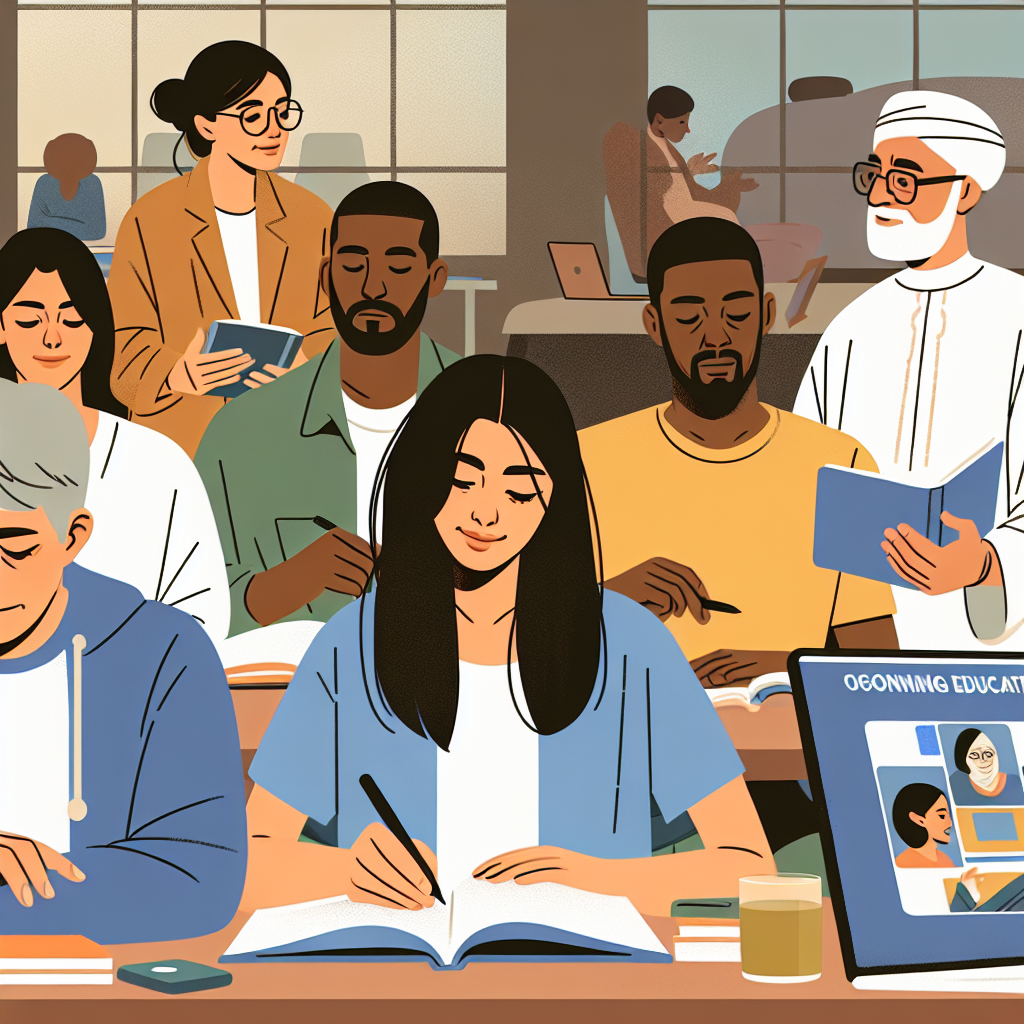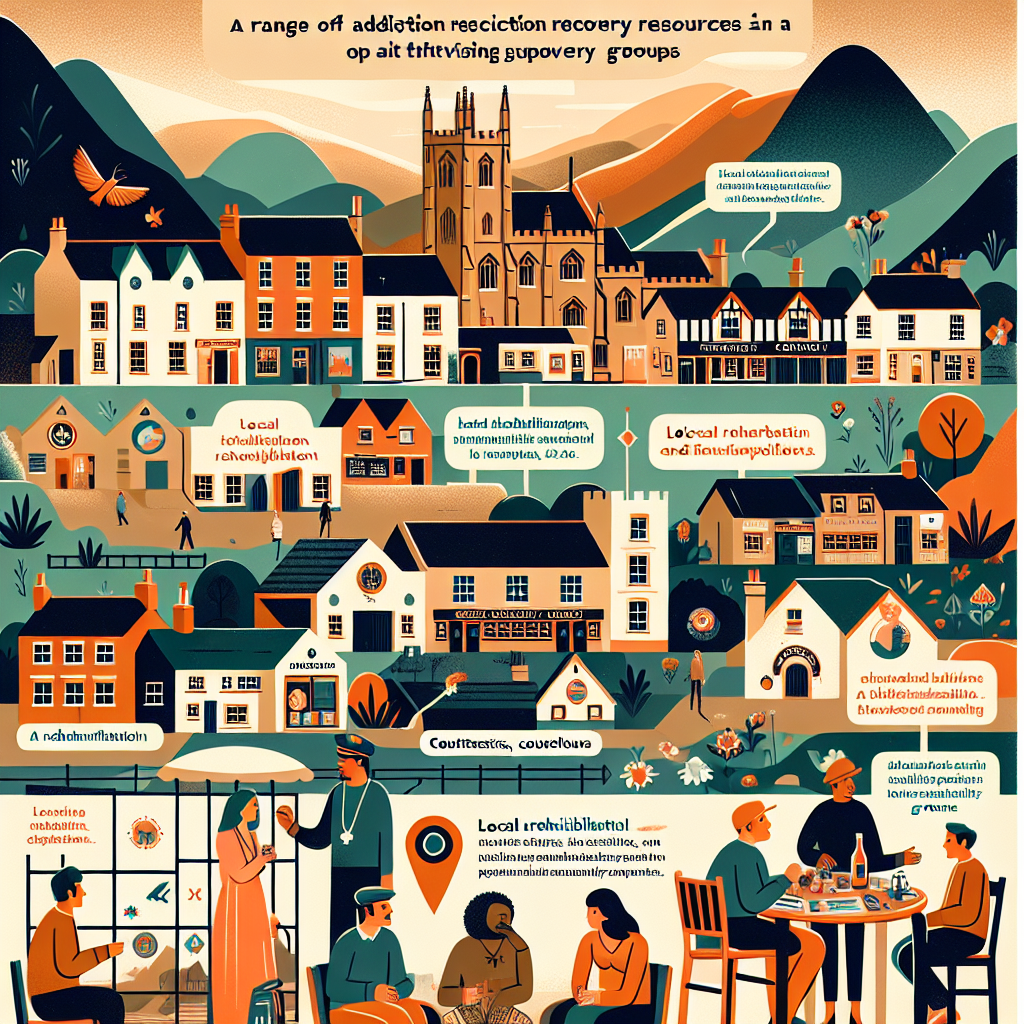-
Table of Contents

“Empowering Minds: Addiction Recovery Services Fueling Lifelong Learning”
Introduction
Addiction recovery services play a crucial role in supporting ongoing education by providing a structured and supportive environment that addresses both the psychological and practical challenges faced by individuals in recovery. These services often include educational programs and resources that help individuals develop new skills, complete their education, or pursue higher learning opportunities. By integrating educational support with therapeutic interventions, recovery services help individuals rebuild their lives, improve their self-esteem, and increase their chances of long-term sobriety. Additionally, these services may offer career counseling, tutoring, and partnerships with educational institutions to facilitate a seamless transition back into the academic world, thereby empowering individuals to achieve their educational and professional goals while maintaining their recovery.
Integrating Educational Programs into Addiction Recovery Services
Addiction recovery services play a crucial role in helping individuals reclaim their lives from the grip of substance abuse. One of the most transformative aspects of these services is the integration of educational programs, which not only aid in recovery but also empower individuals to build a brighter future. By incorporating educational opportunities into the recovery process, these services provide a holistic approach that addresses both the immediate needs of overcoming addiction and the long-term goal of personal and professional development.
To begin with, educational programs within addiction recovery services offer a sense of purpose and direction. For many individuals, addiction can lead to a loss of identity and self-worth. Engaging in educational activities helps to rebuild confidence and self-esteem, as individuals acquire new skills and knowledge. This renewed sense of purpose can be a powerful motivator, encouraging individuals to stay committed to their recovery journey. Moreover, education provides a constructive outlet for energy and focus, which can be particularly beneficial during the early stages of recovery when individuals are learning to navigate life without substances.
Furthermore, educational programs can help individuals develop essential life skills that are critical for maintaining long-term sobriety. These programs often include courses on financial literacy, time management, and effective communication, which are vital for achieving stability and independence. By equipping individuals with these skills, addiction recovery services enable them to handle everyday challenges more effectively, reducing the risk of relapse. Additionally, education fosters critical thinking and problem-solving abilities, which are invaluable tools for overcoming obstacles and making informed decisions.
In addition to life skills, vocational training and career development are integral components of educational programs in addiction recovery services. Many individuals in recovery face significant barriers to employment, such as gaps in their work history or a lack of relevant experience. Vocational training programs provide practical, hands-on experience in various trades and professions, enhancing employability and opening up new career opportunities. This not only improves financial stability but also contributes to a sense of accomplishment and self-sufficiency. Career counseling and job placement services further support individuals in finding meaningful employment that aligns with their interests and strengths.
Moreover, the integration of educational programs into addiction recovery services fosters a supportive and collaborative environment. Learning alongside peers who share similar experiences creates a sense of community and belonging, which is essential for emotional and psychological well-being. Group study sessions, workshops, and peer mentoring programs encourage mutual support and accountability, reinforcing the recovery process. This sense of camaraderie can be particularly uplifting, as individuals realize they are not alone in their journey and can draw strength from the collective resilience of the group.
Additionally, educational programs often include components that address mental health and emotional well-being, recognizing the interconnectedness of these aspects with addiction recovery. Courses on stress management, mindfulness, and emotional regulation provide individuals with tools to cope with the psychological challenges that may arise during recovery. By promoting mental health awareness and self-care practices, these programs contribute to a more comprehensive and sustainable recovery process.
In conclusion, the integration of educational programs into addiction recovery services is a powerful strategy that supports individuals in their journey toward sobriety and beyond. By providing opportunities for personal growth, skill development, and career advancement, these programs empower individuals to rebuild their lives with confidence and purpose. The holistic approach of combining education with recovery not only addresses the immediate challenges of overcoming addiction but also lays the foundation for a fulfilling and productive future. Through education, individuals in recovery can transform their lives, breaking free from the cycle of addiction and embracing a path of continuous growth and self-improvement.
The Role of Addiction Recovery Services in Promoting Lifelong Learning
Addiction recovery services play a crucial role in promoting lifelong learning, offering individuals the tools and support they need to rebuild their lives and pursue educational opportunities. These services recognize that recovery is not just about overcoming substance abuse but also about fostering personal growth and development. By integrating educational support into their programs, addiction recovery services help individuals regain confidence, acquire new skills, and achieve their long-term goals.
One of the primary ways addiction recovery services support ongoing education is by providing access to educational resources and opportunities. Many recovery centers partner with local educational institutions, such as community colleges and vocational schools, to offer classes and training programs tailored to the needs of individuals in recovery. These partnerships enable participants to explore various fields of study, from academic subjects to practical skills, empowering them to make informed decisions about their future careers.
Moreover, addiction recovery services often include life skills training as part of their programs. These sessions cover essential topics such as time management, financial literacy, and effective communication, which are vital for success in both personal and professional life. By equipping individuals with these skills, recovery services help them navigate the challenges of returning to school or entering the workforce, thereby fostering a sense of independence and self-sufficiency.
In addition to providing educational resources, addiction recovery services offer personalized support to help individuals overcome barriers to learning. Many people in recovery face unique challenges, such as gaps in their education, learning disabilities, or a lack of confidence in their academic abilities. Recovery counselors work closely with participants to identify these obstacles and develop tailored strategies to address them. This might include one-on-one tutoring, academic advising, or connecting individuals with specialized support services.
Furthermore, addiction recovery services emphasize the importance of creating a supportive and nurturing environment for learning. Group therapy sessions and peer support groups provide a safe space for individuals to share their experiences, challenges, and successes. This sense of community fosters mutual encouragement and accountability, which can be incredibly motivating for those pursuing educational goals. By surrounding themselves with others who understand their journey, individuals in recovery are more likely to stay committed to their learning objectives.
Another critical aspect of promoting lifelong learning in addiction recovery is helping individuals set realistic and achievable goals. Recovery counselors assist participants in identifying their strengths and interests, which can guide them in choosing educational paths that align with their passions and aspirations. Setting clear, attainable goals helps individuals maintain focus and motivation, making the process of returning to education less overwhelming and more manageable.
Additionally, addiction recovery services often provide ongoing support even after individuals have completed their initial treatment programs. Alumni programs, continued counseling, and access to educational resources ensure that individuals have the support they need to stay on track with their learning goals. This long-term commitment to their success underscores the belief that recovery is a lifelong journey, and education is a vital component of that journey.
In conclusion, addiction recovery services play an instrumental role in promoting lifelong learning by providing access to educational resources, personalized support, and a nurturing environment. By helping individuals overcome barriers to education and set achievable goals, these services empower them to rebuild their lives and pursue their dreams. The integration of educational support into addiction recovery programs not only enhances personal growth but also contributes to the overall well-being and success of individuals in recovery.
Q&A
1. Addiction recovery services often provide educational workshops and classes that focus on life skills, vocational training, and academic subjects to help individuals reintegrate into society and pursue further education.
2. Many recovery programs offer partnerships with local educational institutions, providing access to GED programs, college courses, and continuing education opportunities to support long-term personal and professional development.
Conclusion
Addiction recovery services support ongoing education by providing individuals with the necessary resources, counseling, and structured programs to help them rebuild their lives and pursue educational goals. These services often include educational workshops, vocational training, and partnerships with educational institutions to facilitate access to academic opportunities. By addressing the underlying issues of addiction and offering continuous support, these programs enable individuals to focus on their personal and professional development, ultimately leading to improved self-sufficiency and long-term recovery.



